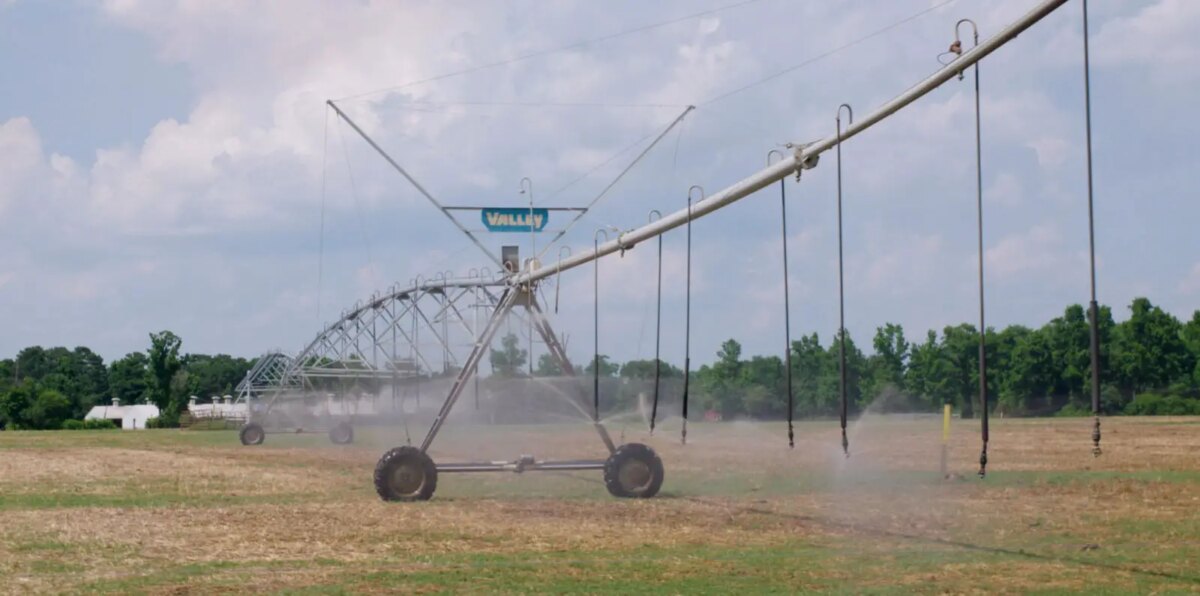
What is truly the cost of a lifestyle we have become comfortable with? When we order extra bacon on a sandwich, do we ever stop and consider everything that went into providing that strip of bacon? I can’t say that I always consider where my food is sourced or the cost for others to make certain aspects of my life more comfortable and enjoyable. The Smell of Money is a documentary that makes you consider these questions as it attacks the world of hog farming in North Carolina in the United States.
A mist of reddish-brown liquid is cast over a field of growing crops. A sight that becomes immensely more unsettling when you realize that the liquid being sprayed into the air is not just muddy water but stewed and sunbaked hog crap. More unsettling is the realization that this is actively taking place next to people’s homes, engulfing and affecting the very air they breathe.
Hog waste is pumped out of holding barns and emptied into pits in the ground, referred to as “lagoons.” These “lagoons,” or “cesspools,” as protestors of the practice call them, are open-air ponds where hog waste is pooled to sit in the sun and bake in the North Carolinian heat. While using animal waste is an extremely common practice in the fertilization process on farms, it is not very pleasant when you are unwillingly exposed to it on a daily basis. When in close proximity for long periods of time, the smell can be overwhelming and nauseating. Such is the experience of some North Carolina residents.
“…follows a handful of families whose properties are adjacent to pig farms in rural North Carolina…”
The Smell of Money follows a handful of families whose properties are adjacent to pig farms in rural North Carolina. One of the neighbor homeowners is Elsie Herring, whose grandfather bought the property after he was freed from slavery. Elsie and her family lived on and enjoyed their property for years before corporate pig farms purchased land surrounding them and moved into their operation. At first, the sights, sounds, and smells of the hog farm were unpleasant. But over time, the long-term effects became apparent as health problems began to arise.
In true David versus Goliath fashion, Elsie, along with other families affected by the hog farms in her area, attempts to go toe to toe with the corporately supported pig farms with legal action. Years go by, families are threatened, and little progress is made. With money comes power and influence. Since the food corporations operating the hog farms have far more money than the longtime residents, the locals are faced with a seemingly endless uphill battle.
Along the way, some high-profile individuals joined in to help the cause. The documentary features an interview with Senator Cory Booker and footage of Robert F. Kennedy Jr. getting involved in the cause. Also included in the documentary is a man named Don Webb, who once owned and operated a hog farm himself but left the business after realizing the negative impact it had on his neighbors and the environment. He, too, joins the fight in helping the affected locals stand up to the corporate entities.
This type of documentary is meant to bring awareness to a problem and serve as a call to action for its viewers. The Smell of Money does so effectively with disgusting footage of the hog farm practice and compelling testimony from residents. I was not left thinking that I should question removing pork or any other type from my diet, but I was left thinking about how I could make a more concerted effort to do a little research before purchasing certain food products on my next grocery trip.














